PURE
1/34
There's no tags or description
Looks like no tags are added yet.
Name | Mastery | Learn | Test | Matching | Spaced | Call with Kai |
|---|
No analytics yet
Send a link to your students to track their progress
35 Terms
formula for area of the sector of a circle in radians
A= 1/2 x r^2 x θ
formula for length of an arc in radians
r x θ = l
Small Angle Approximation: sinθ, tanθ , cosθ
sin θ = θ
tan θ = θ
cos θ = 1 - (θ^2)/2
in binomial expansions, what steps do you take when it says "using your expansion of (*function) estimate the value of (number*^(power of function))" to solve?
-you equate the number to the function then solve for x
-sub in the x value into your expansion
What is a unit vector?
A vector with the magnitude of 1, a unit vector in the direction of a is a/[a]
what is a position vector?
The position of a point relative to the origin
1 + tan^2x
= sec^2(x)
1 + cot^2x
cosec^2x
arcos graph domain and range
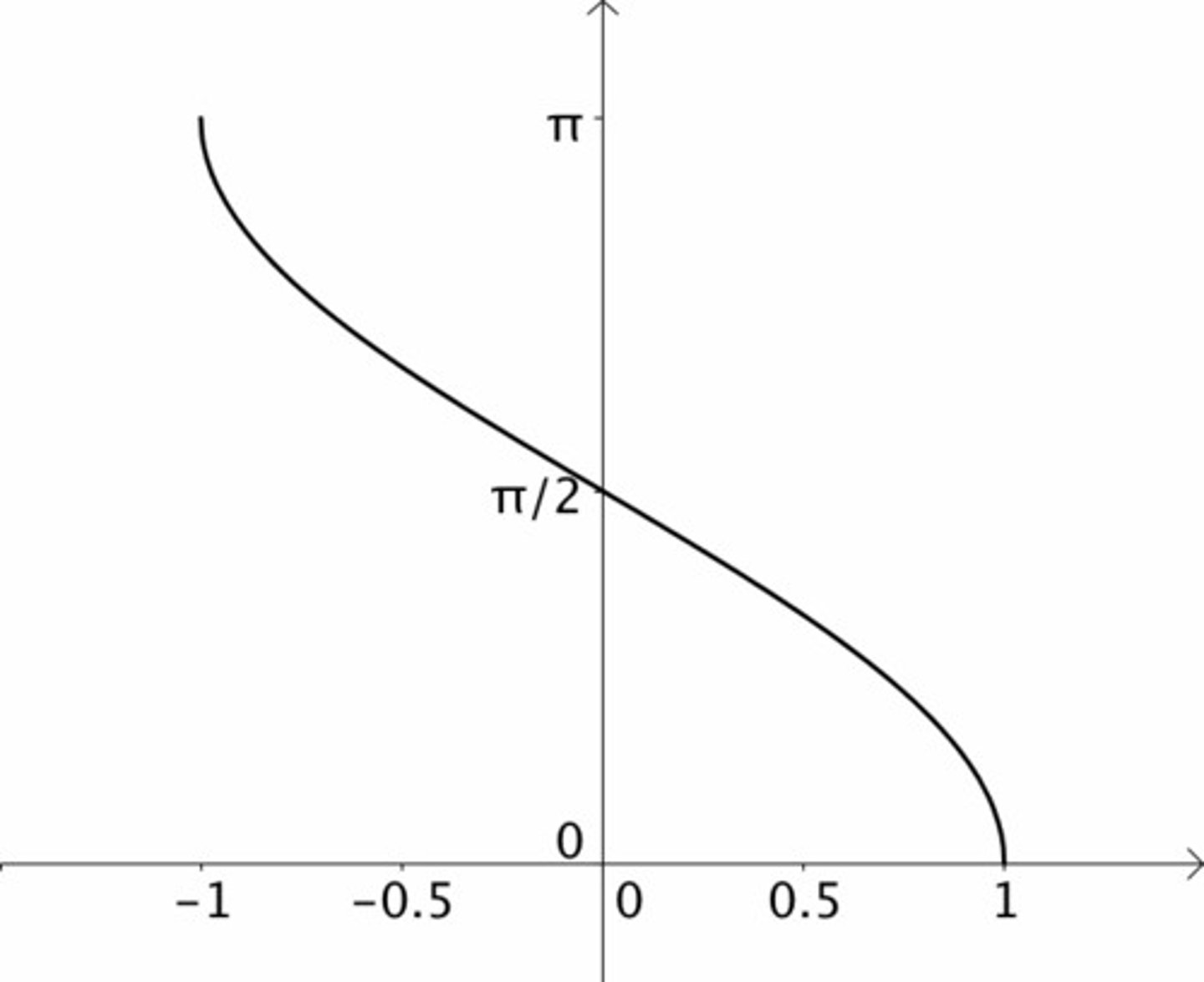
Arcsin graph domain and range
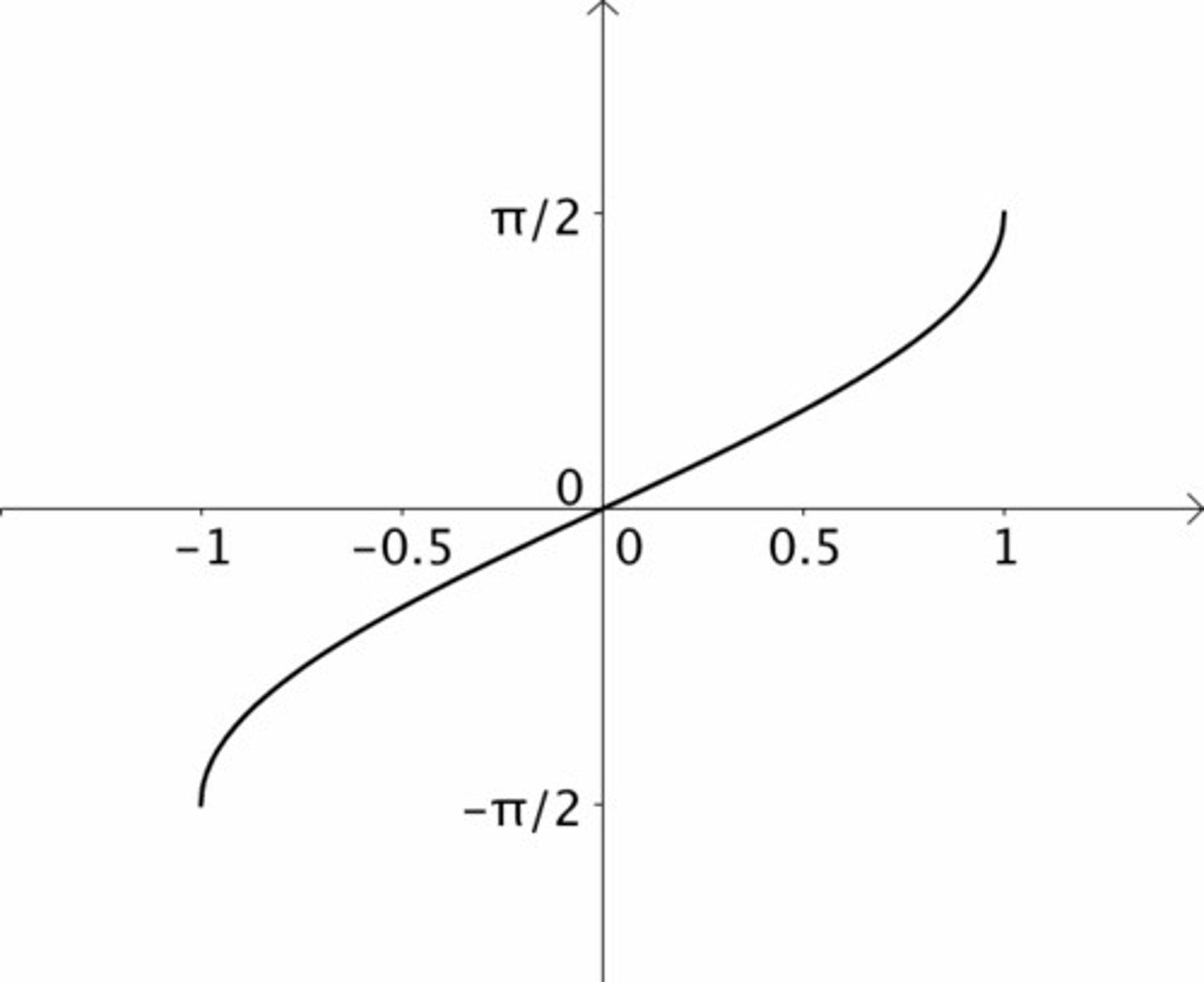
Arctan graph, domain, and range
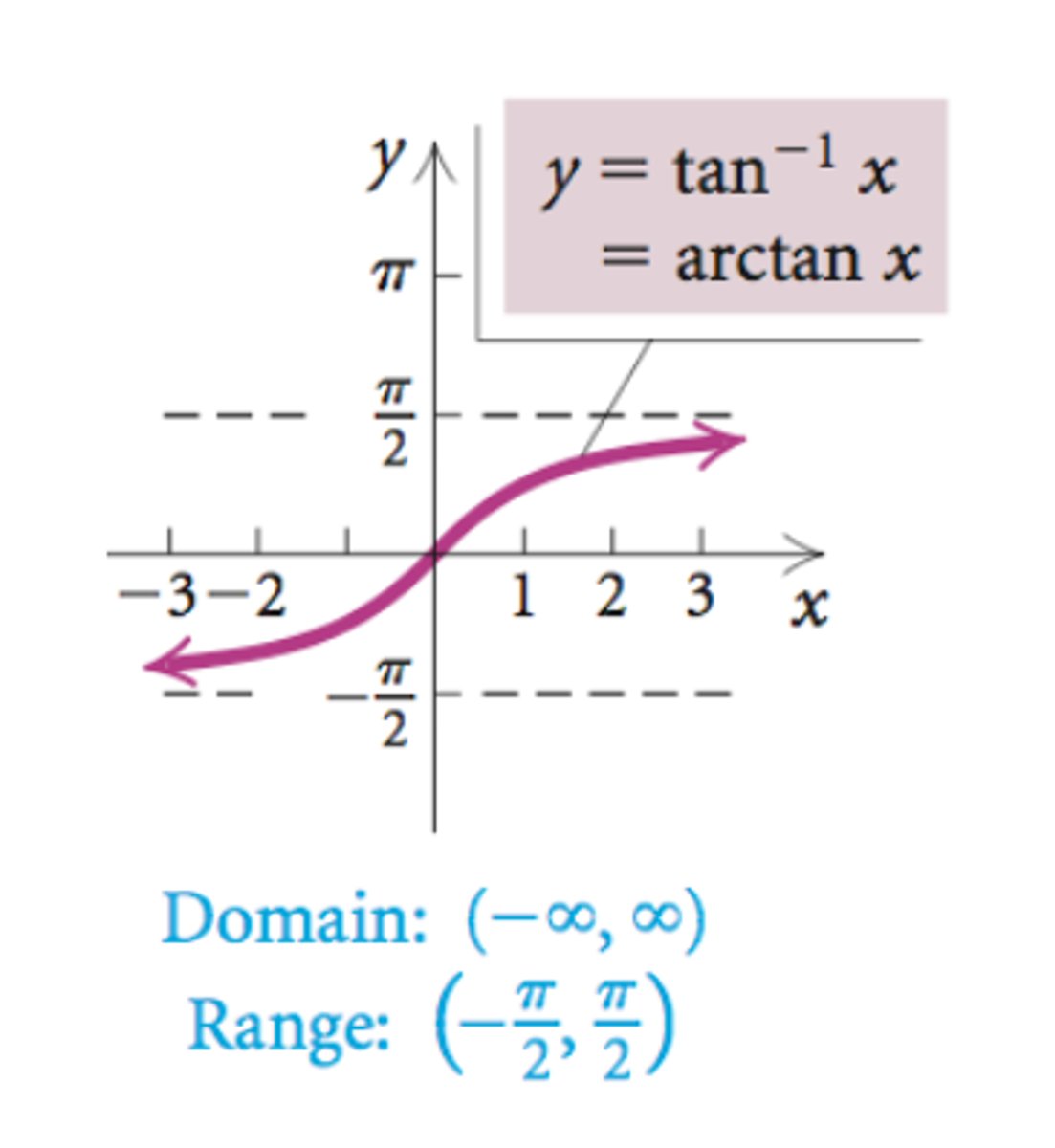
sec x graph
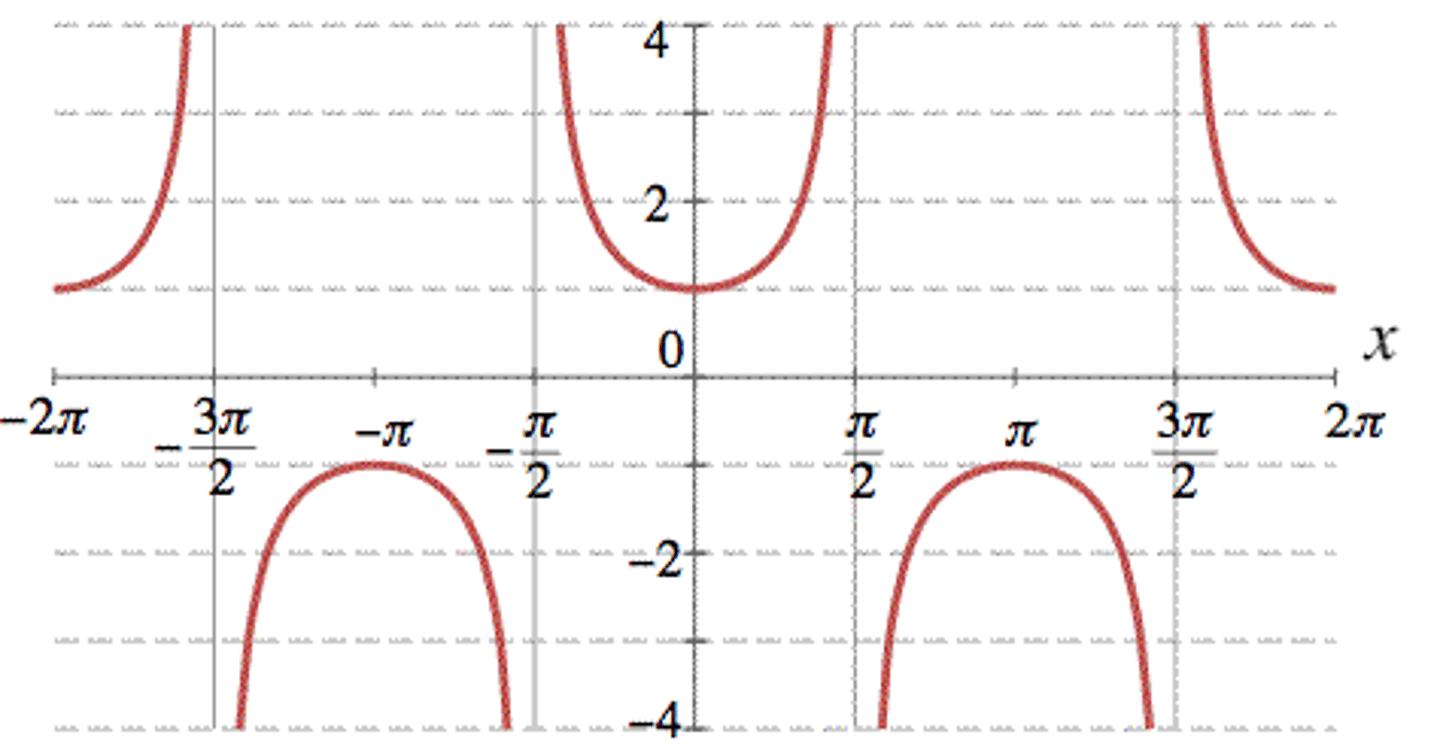
cosec x graph
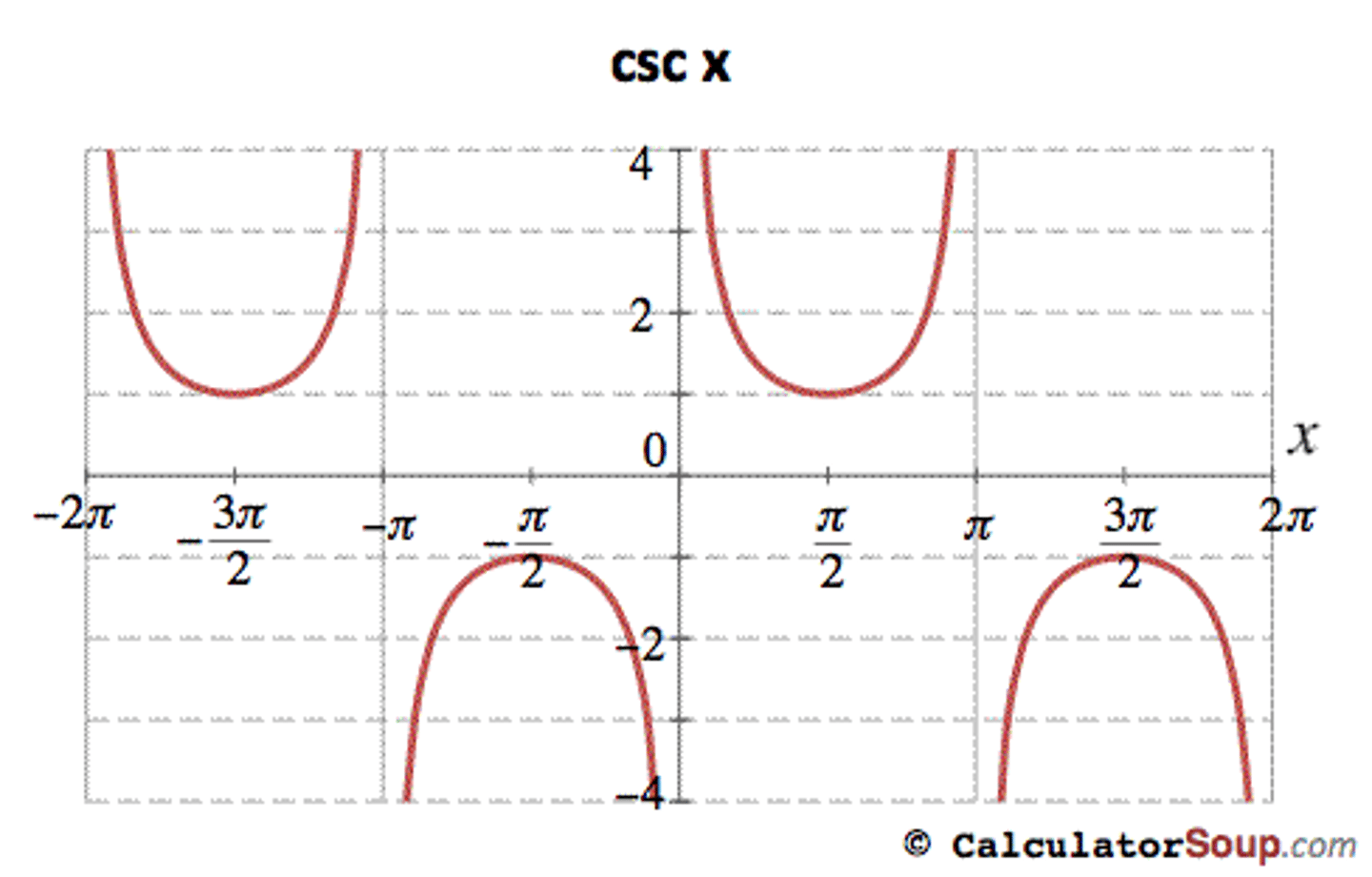
cot x graph
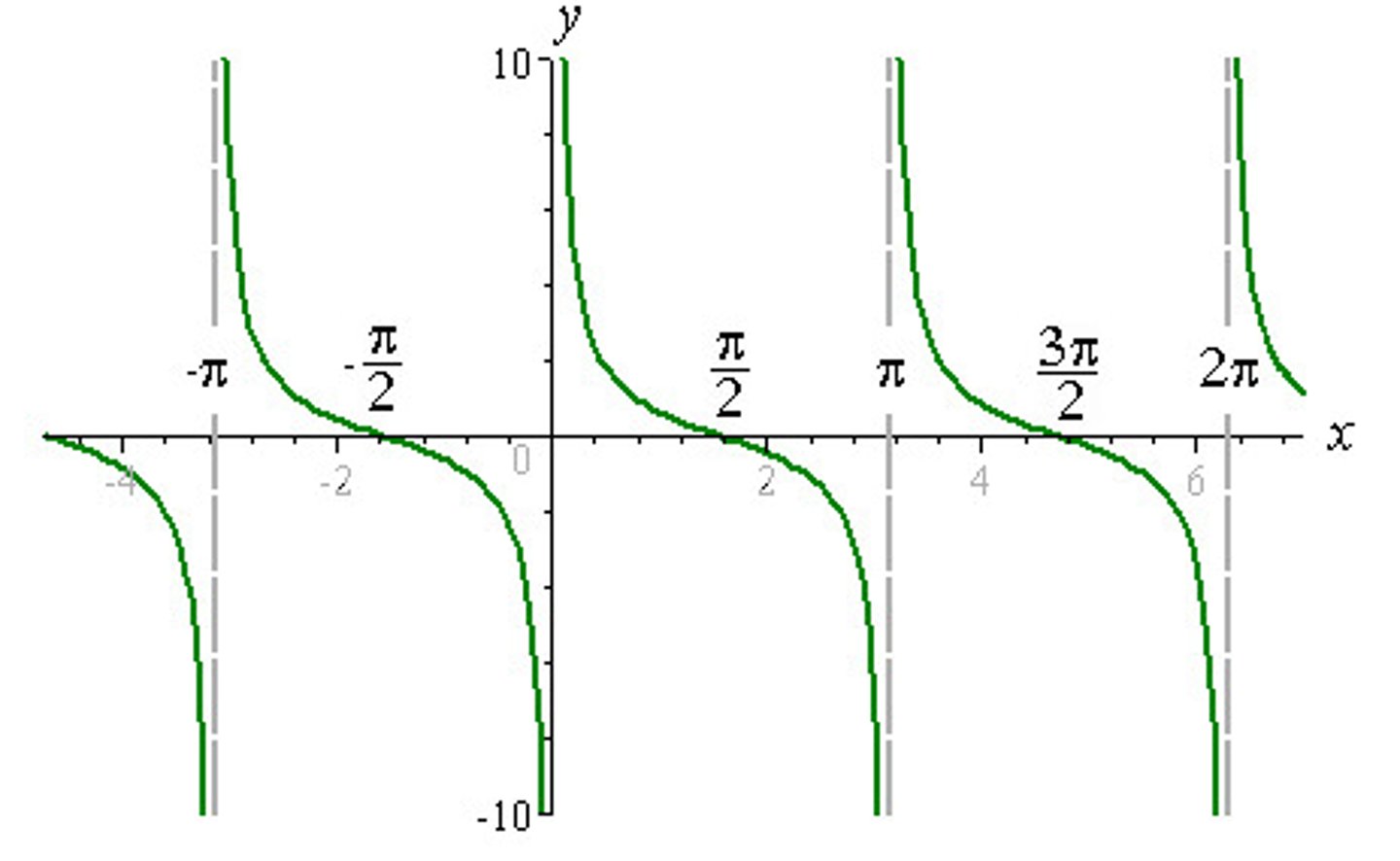
Sin 2A = ?
Sin 2A = 2 SinA CosA
Cos 2A = ?
cos (2A) = cos²(A) - sin²(A)
= 2Cos²A - 1
= 1 - 2Sin²A
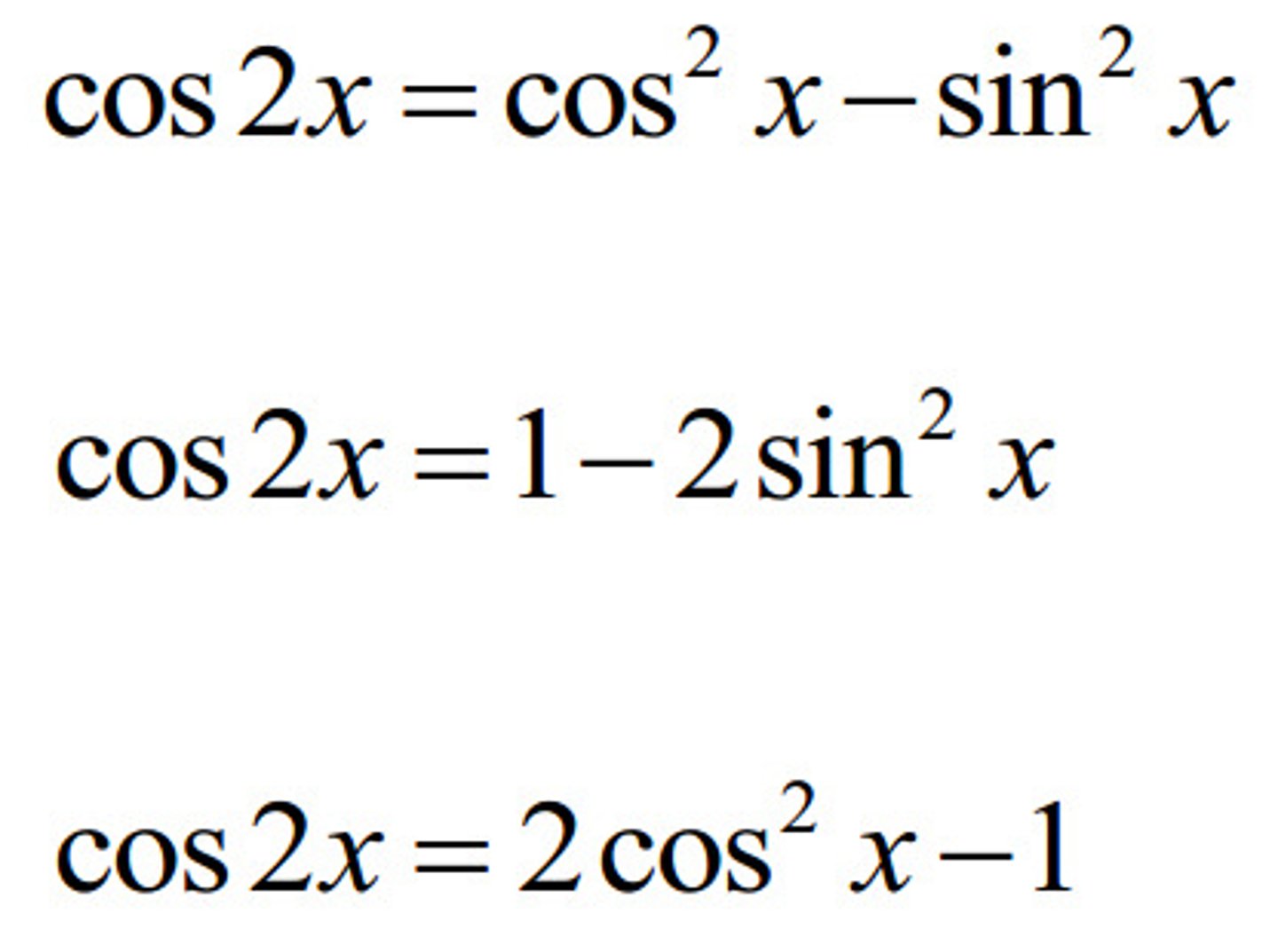
Tan 2A = ?
(2 tan A) / (1 - tan² A)
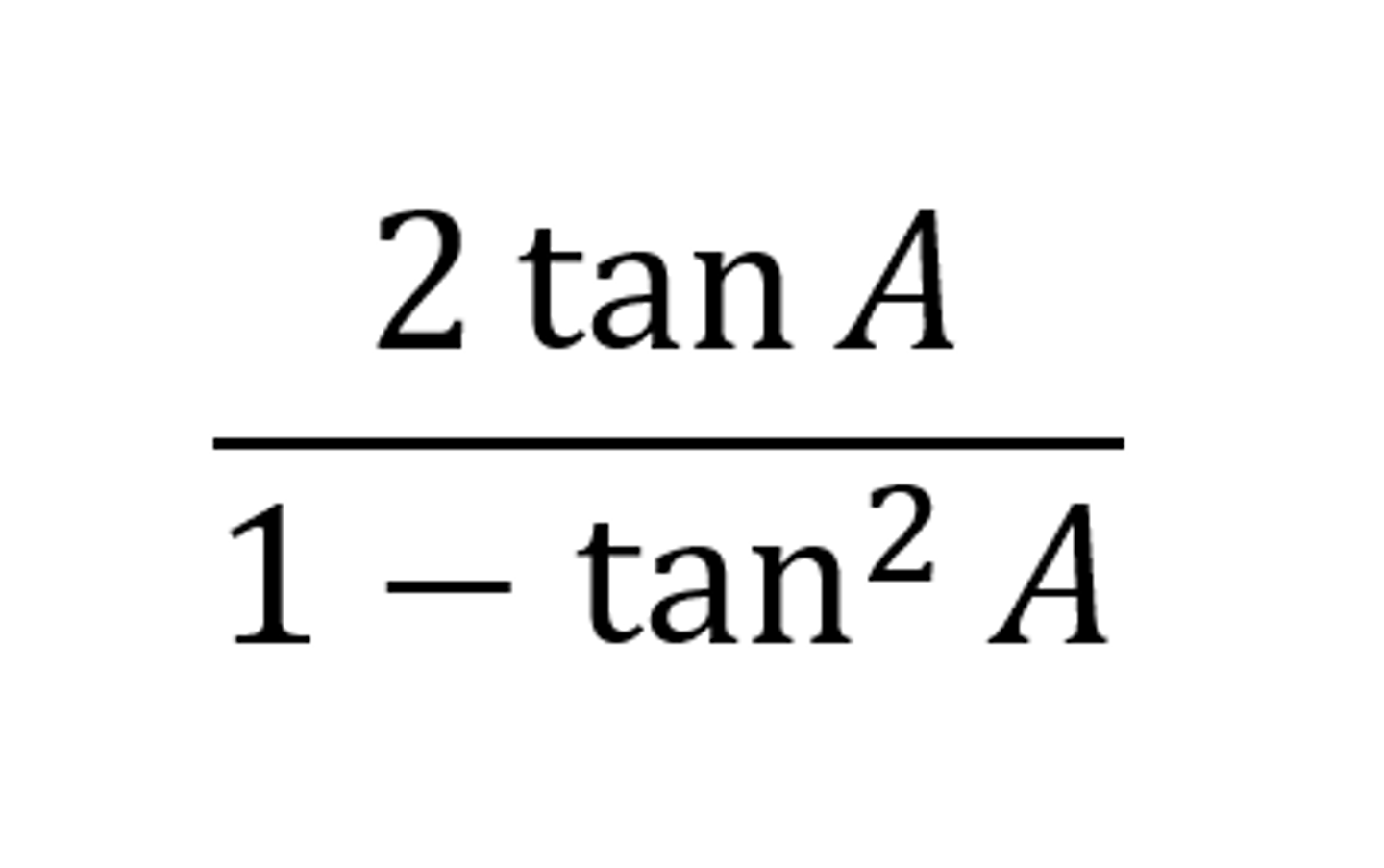
d/dx cotx
-cosec²x
d/dx tanx
sec²x
d/dx secx
secxtanx
d/dx cosecx
-cosecxcotx

sin(A+B)=
sin(a)cos(b)+cos(a)sin(b)
cos(A+B)=
cos(a)cos(b)-sin(a)sin(b)

tan(A+B)=
(tanA + tanB)/(1 - tanAtanB)
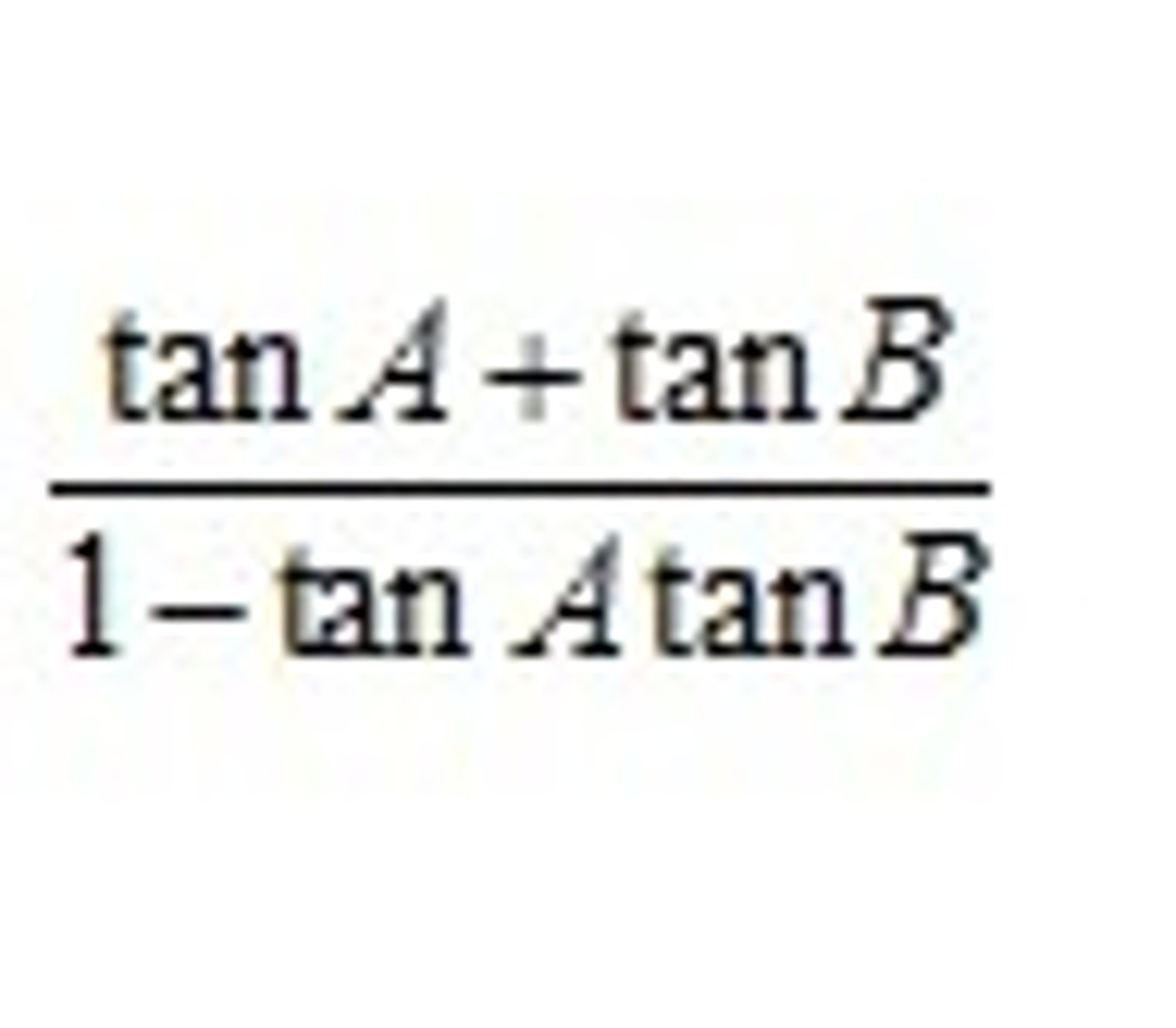
d/dx 2^x
what is the general rule to solving d/dx a^bx
ln2 * 2^x
- ln(base) x (original function) x (derivative of original function)
define sequence
define series
sequence - list of terms
series - the sum of a list of terms
nth term of an arithmetic series
a + (n-1)d

sum of n terms of an arithmetic series
n/2(2a+(n-1)d)
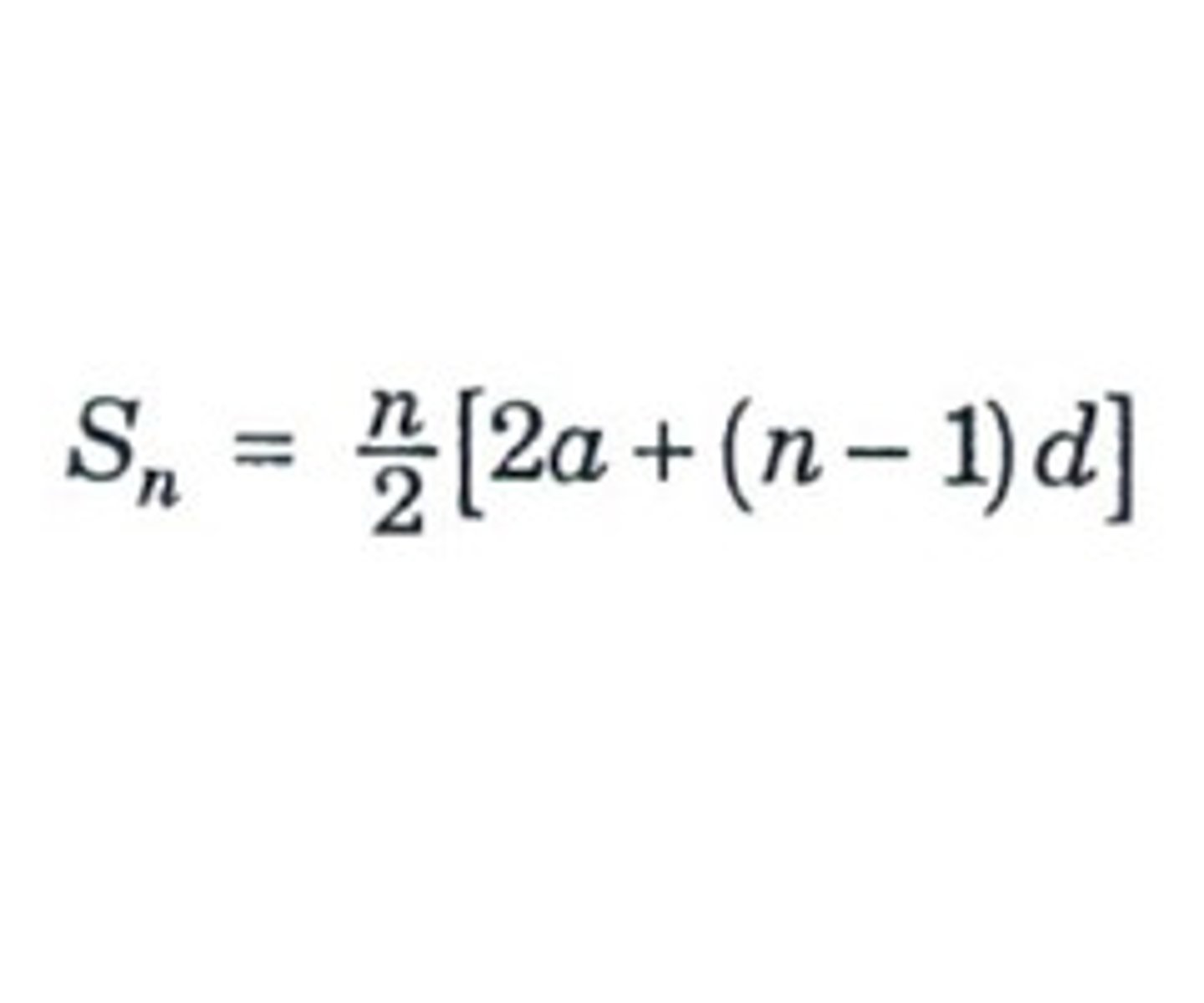
what is a geometric sequence?
geometric sequence - multiplying by a common ratio, r, to get from one term to the next
nth term of a geometric sequence
an=a1(r)^n-1
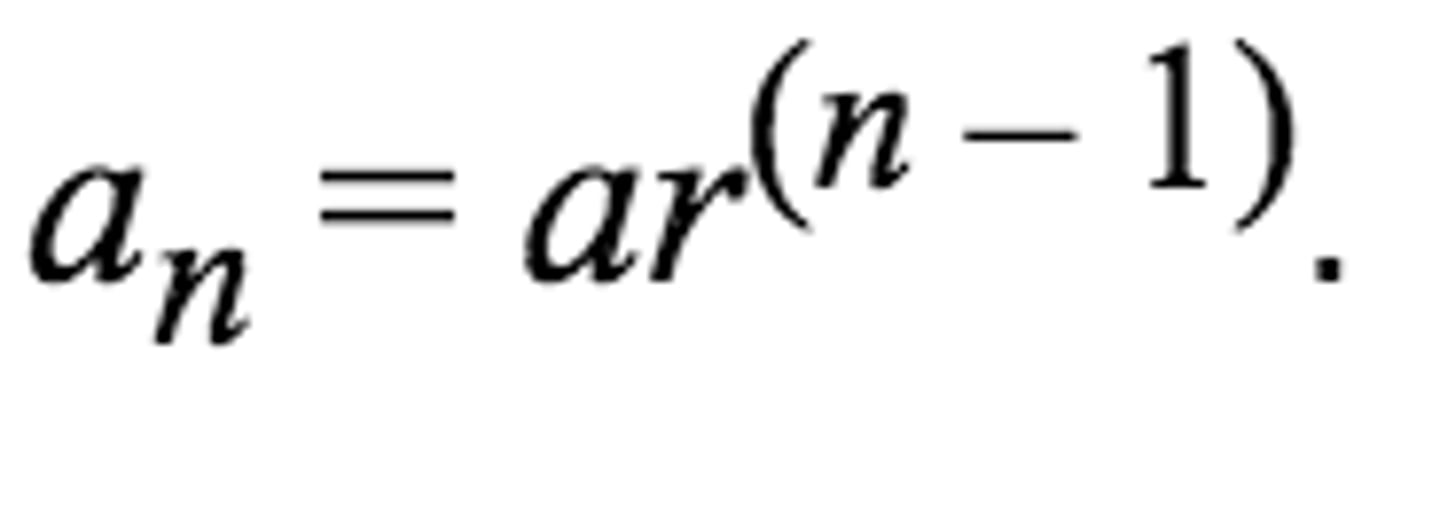
Sum of the first n terms of a geometric series
Sn = a(1-r^n)/1-r
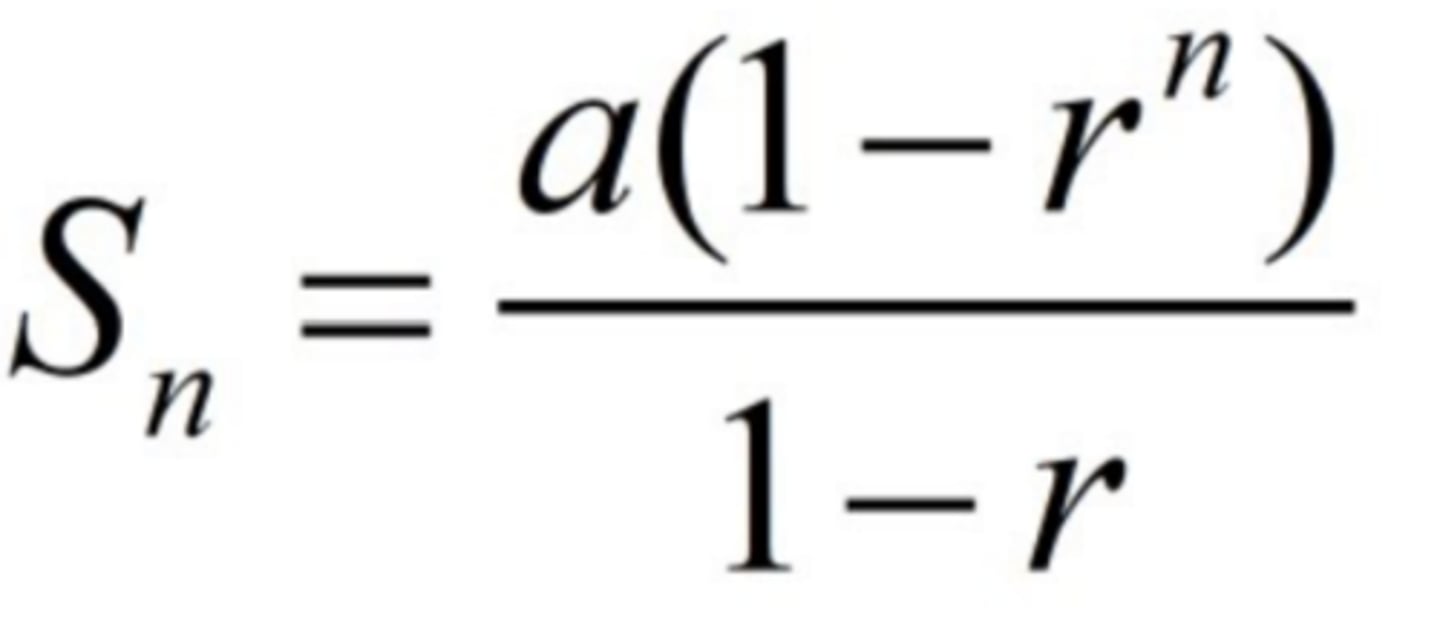
define divergent
define convergent
divergent - when each term is bigger than the previous
convergent - when the terms tend to 0
sum to infinity of a geometric sequence
S= a/1-r
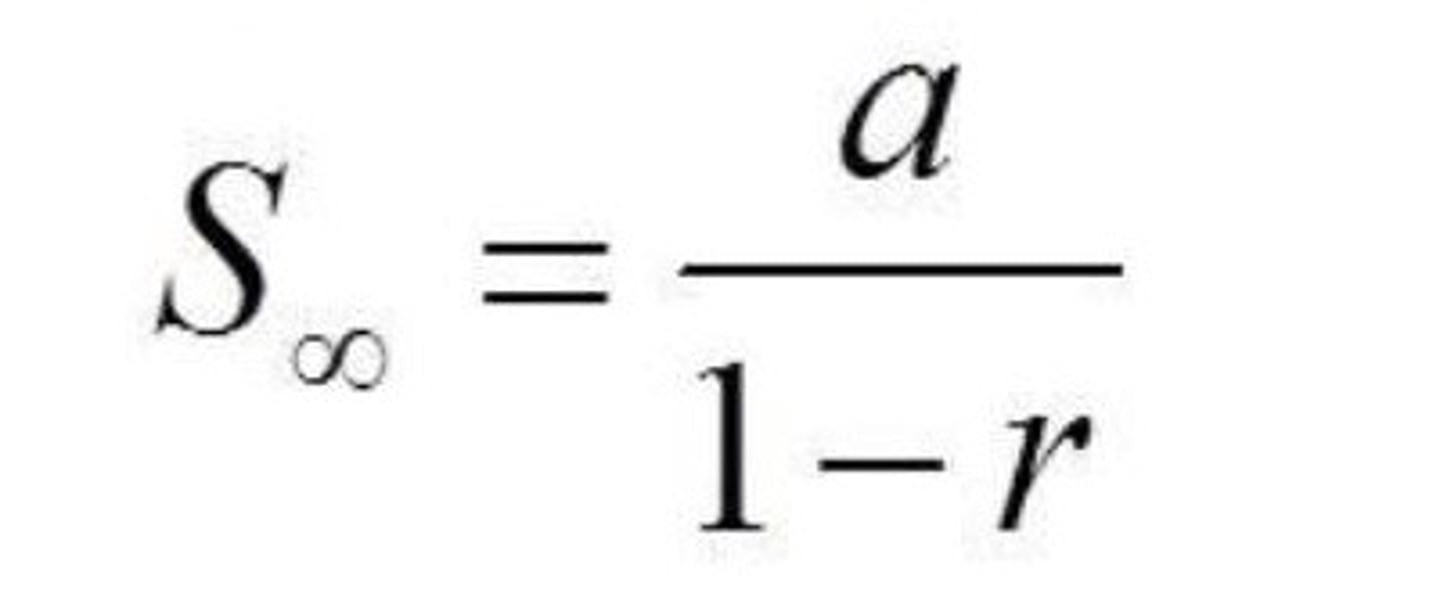
Proof for sum in arithmetic sequence
1) Sn = a + (a+d) + (a+2d) ...
2) Sn = (a+(n-1)d) + (a+(n-2)d) + (a+(n-3)d) ...
1) + 2) = 2Sn = n(2a+(n-1)d)
Sn = 0.5n(2a+(n-1)d)
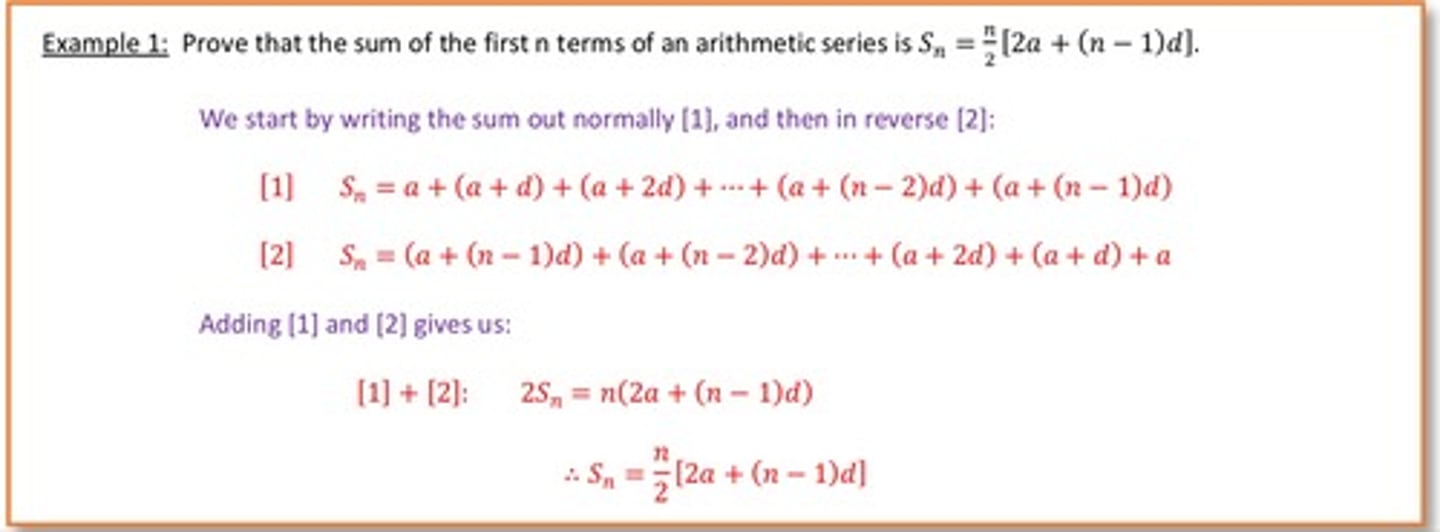
Proof for sum in geometric series
Sn = a + ar + ar^2
rSn = ar + ar^2 + ar^3
Sn - rSn = a - ar^n
Sn(1-r) = a - ar^n
Sn= (a-ar^n)/(1-r)
